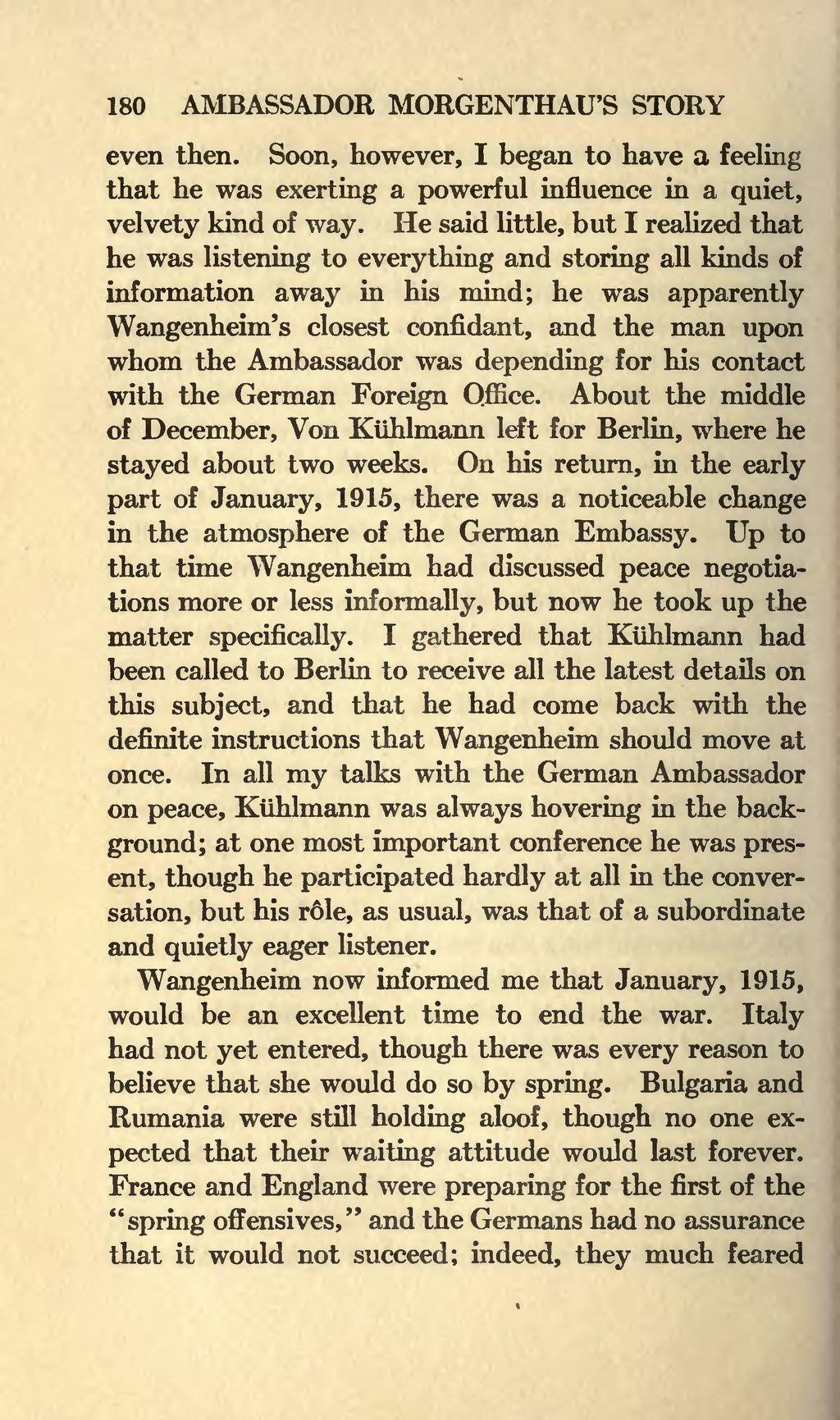even then. Soon, however, I began to have a feeling that he was exerting a powerful influence in a quiet, velvety kind of way. He said little, but I realized that he was listening to everything and storing all kinds of information away in his mind; he was apparently Wangenheim's closest confidant, and the man upon whom the Ambassador was depending for his contact with the German Foreign Office. About the middle of December, Von Kühlmann left for Berlin, where he stayed about two weeks. On his return, in the early part of January, 1915, there was a noticeable change in the atmosphere of the German Embassy. Up to that time Wangenheim had discussed peace negotiations more or less informally, but now he took up the matter specifically. I gathered that Kühlmann had been called to Berlin to receive all the latest details on this subject, and that he had come back with the definite instructions that Wangenheim should move at once. In all my talks with the German Ambassador on peace, Kühlmann was always hovering in the background; at one most important conference he was present, though he participated hardly at all in the conversation, but his role, as usual, was that of a subordinate and quietly eager listener.
Wangenheim now informed me that January, 1915, would be an excellent time to end the war. Italy had not yet entered, though there was every reason to believe that she would do so by spring. Bulgaria and Rumania were still holding aloof, though no one expected that their waiting attitude would last forever. France and England were preparing for the first of the "spring offensives," and the Germans had no assurance that it would not succeed; indeed, they much feared
